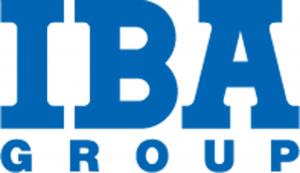Berexia and IBA Group Announce Fintech Partnership
IBA Group, a global IT services provider, and Berexia, a trusted partner in digital transformation and fintech innovation, announced a strategic partnership
This collaboration brings together the two companies that have deep expertise and a shared vision for financial inclusion and digital transformation. With over 40 years of combined experience in the fintech sector, IBA Group and Berexia will leverage their complementary strengths to provide innovative financial products, scale existing solutions, and unlock new growth opportunities.
A Combination of Expertise and Innovation
Berexia and IBA Group bring proven expertise in delivering high-end fintech solutions, from mobile payments and digital banking to co-creating tailored fintech solutions. This partnership will enable an exchange of best practices, knowledge, and technical skills between their respective teams, fostering a culture of continuous improvement.
Vadzim Smatrayeu, VP FinTech Services at IBA Group, said, “We believe that collaboration is the key to solving mobile payment challenges. Collaboration with Berexia allows us to combine our technology expertise with their regional insights and advanced ecosystem to build impactful solutions that respond to real-world needs. Our extensive experience in the fintech sector will be an essential asset in this partnership.”
“Working together, we aim to accelerate financial inclusion and support the digital economy in Africa and globally,” added Sami METWALI, Head of Products & Solutions at Berexia. “Berexia and IBA Group are fully aligned and committed to investing in a strategic and ambitious fintech initiative in Morocco. We are also exploring further collaboration on additional use cases. Our partnership will not only benefit our clients and partners but will also help set new benchmarks for the fintech industry.”
Commitment to High-Potential Use Cases
The partnership will initially focus on high-potential use cases, such as SoftPOS solutions for SMEs, micro businesses, and individuals. The solutions will contribute to economic growth and improve financial accessibility in the African region.
About Berexia
Berexia is a leading consulting and technology services company specializing in digital transformation, enterprise IT solutions, and business innovation. With a strong presence across Europe, the Middle East, and Africa, Berexia supports both public and private sector organizations in modernizing their operations through advanced technologies and data-driven strategies.
The company offers end-to-end expertise in data management, AI-powered automation, and financial technology (FinTech), with a focus on delivering scalable, secure, and high-performing solutions. Berexia also maintains a strong commitment to sustainability and corporate responsibility, actively helping clients reduce their carbon footprint and adopt ESG best practices through its dedicated solution, EvoEdge.
As a strategic partner of leading technology vendors, Berexia has received multiple recognitions for its innovation-driven delivery and client-centric approach. For more information, visit http://www.berexia.com
About IBA Group
IBA Group is a leading IT service provider, performing software development, migration, maintenance, support, and IT consulting services with 2,000 IT and business professionals. Headquartered in Prague, Czech Republic, IBA Group has offices and development centers across Europe, Asia, America, and Africa. IAOP recognizes IBA Group as one of The Global Outsourcing 100 in the Leaders category. IBA Group is a winner of IT Europa's Channel Awards, of CEE Business Services Awards by the European Business Services Association, and of GSA Awards by the Global Sourcing Association. For more information, visit http://ibagroupit.com
Irina Kiptikova
IBA Group
email us here
Visit us on social media:
LinkedIn
Instagram
Facebook
YouTube
X
Legal Disclaimer:
EIN Presswire provides this news content "as is" without warranty of any kind. We do not accept any responsibility or liability for the accuracy, content, images, videos, licenses, completeness, legality, or reliability of the information contained in this article. If you have any complaints or copyright issues related to this article, kindly contact the author above.
Gas location drives star formation in distant galaxies
Introducing Professional Dental Services from Meader Family Dentistry
First Trailer of 'Syrenya: The Naked Queen' Reveals Arthurian Epic of Power, Love, and Supernatural Forces
Kalendarium
Więcej ważnych informacji
 Jedynka Newserii
Jedynka Newserii

 Jedynka Newserii
Jedynka Newserii

Handel

Ważą się losy nowej umowy między Unią Europejską a Ukrainą na temat zasad handlu. Obecne przepisy wygasają 5 czerwca
5 czerwca wygasa ATM, czyli wprowadzona przed trzema laty i potem z modyfikacjami przedłużana umowa między UE a Ukrainą, liberalizująca zasady wwozu ukraińskich towarów na teren Wspólnoty. Strona ukraińska chciałaby jej przedłużenia, na razie jednak Unia zgodziła się jedynie na przedłużenie bezcłowego przywozu żelaza i stali. Największe obawy, zwłaszcza w Polsce, budzi kwestia produktów rolnych. Zdaniem europosłanki Konfederacji Anny Bryłki należałoby wrócić do obowiązującej przed 2022 rokiem umowy stowarzyszeniowej DCFTA, ponieważ Ukraina może dziś eksportować swoje towary drogą morską poprzez porty na Morzu Czarnym, a dzięki darmowemu dostępowi do unijnego rynku bogacą się jedynie potentaci rolni.
Ochrona środowiska
Nowe technologie pomagają szybciej i dokładniej sortować odpady. Wciąż nie wszystkie da się jednak przetworzyć

Do 2030 roku 55 proc. odpadów opakowaniowych z tworzyw sztucznych powinno trafiać do przetworzenia. W ubiegłym roku było to ok. 27 proc. Nowe technologie w coraz większym stopniu ułatwiają sortowanie odpadów, ale nie pozwalają jeszcze na przetworzenie wszystkich ich rodzajów. To pierwsze wyzwanie związane z zamykaniem obiegu. Kolejnym jest zwiększanie zawartości materiałów pochodzących z recyklingu w produkowanych opakowaniach, czego wymagają unijne przepisy. Choć w tym obszarze widać w ostatnich latach znaczące postępy, nie brakuje wyzwań.
Handel
Rosyjskie surowce przestaną płynąć do UE. Spóźniony, ale ambitny i istotny plan ma być wdrożony do 2027 roku

– Kupowanie surowców energetycznych z Rosji jest jak kupowanie broni przeciwko Ukrainie – uważa europosłanka PO Mirosława Nykiel. Dlatego KE planuje do 2027 roku ograniczyć do zera import rosyjskich paliw. Joanna Scheuring-Wielgus ocenia, że taka decyzja powinna zapaść już dawno, ale lepiej późno niż wcale. Co więcej, państwa członkowskie powinny być w tych deklaracjach zjednoczone najbardziej, jak się da.
Partner serwisu
Szkolenia

Akademia Newserii
Akademia Newserii to projekt, w ramach którego najlepsi polscy dziennikarze biznesowi, giełdowi oraz lifestylowi, a także szkoleniowcy z wieloletnim doświadczeniem dzielą się swoją wiedzą nt. pracy z mediami.










.gif)

 |
| |
| |
|